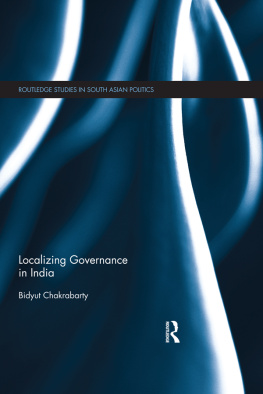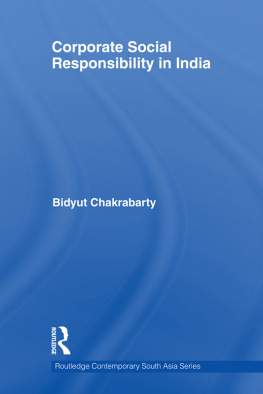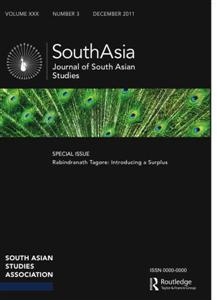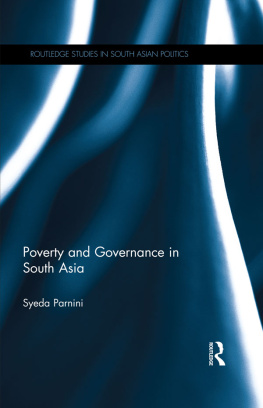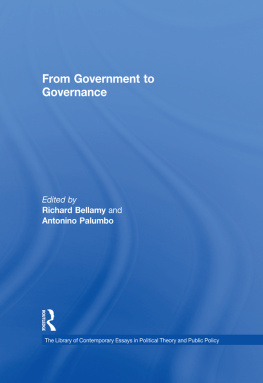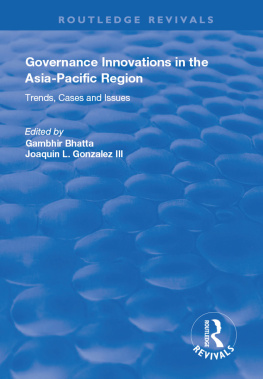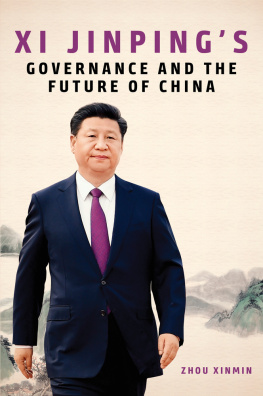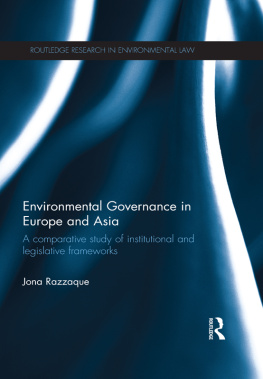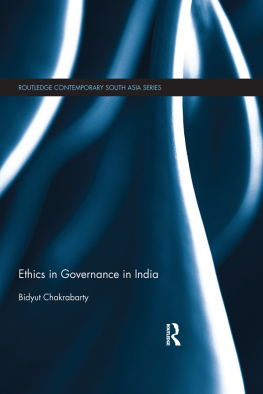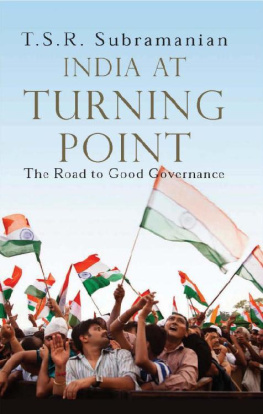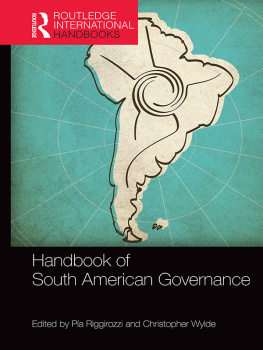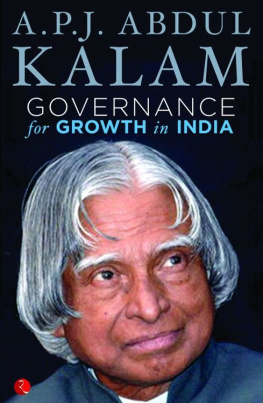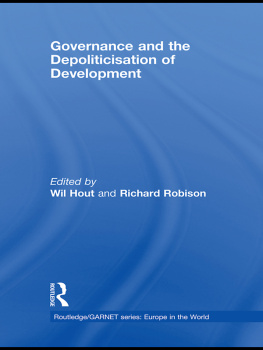Localizing Governance in India
Participatory governance has a long history in India and this book traces historical-intellectual trajectories of participatory governance and how older Western discourses have influenced Indian policymakers. While colonial rulers devolved power to accommodate dissenting voices, for independent India participatory governance was a design for democratizing governance in its true sense. Participation also acted as a vehicle for localizing governance.
The author draws on both Western and non-Western theoretical treatises and the book seeks to conceptualize localizing governance also as a contextual response. It also makes the argument that despite being located in different socio-economic and political milieu, thinkers converge to appreciate localizing governance as perhaps the only reliable means to democratize governance. The book aims to confirm this argument by reference to sets of evidence from the Indian experience of localizing governance.
By attempting a genealogy of participatory governance in the West and in India, and an empirical study of participatory governance in India, the book sheds light on the exchange of ideas and concepts through space and time, thus adding to the growing body of literature in the social sciences on conceptual flow. It will be of interest to political scientists and historians, particularly those studying South Asia.
Bidyut Chakrabarty is Professor in Political Science at the University of Delhi, India. He is the author of numerous books on Indian Politics and Gandhi. His most recent monograph is Ethics in Governance in India, also published by Routledge (2016).
Routledge Studies in South Asian Politics
1 Nepal and the Geo-Strategic Rivalry between China and India
Sanjay Upadhya
2 Security Community in South Asia
Muhammad Shoaib Pervez
3 Refugees and Borders in South Asia
The Great Exodus of 1971
Antara Datta
4 Indias Human Security
Lost Debates, Forgotten People, Intractable Challenges
Edited by Jason Miklian and Ashild Kolas
5 Poverty and Governance in South Asia
Syeda Parnini
6 USPakistan Relations
Pakistans Strategic Choices in the 1990s
Nasra Talat Farooq
7 Public Policy and Governance in Bangladesh
Forty Years of Experience
Nizam Ahmed
8 Separatist Violence in South Asia
A Comparative Study
Matthew J. Webb
9 Pakistans Democratic Transition
Change and Persistence
Edited by Ishtiaq Ahmad and Adnan Rafiq
10 Localizing Governance in India
Bidyut Chakrabarty
First published 2017
by Routledge
2 Park Square, Milton Park, Abingdon, Oxon OX14 4RN
and by Routledge
711 Third Avenue, New York, NY 10017
Routledge is an imprint of the Taylor & Francis Group, an informa business
2017 Bidyut Chakrabarty
The right of Bidyut Chakrabarty to be identified as author of this work has been asserted by him in accordance with sections 77 and 78 of the Copyright, Designs and Patents Act 1988.
All rights reserved. No part of this book may be reprinted or reproduced or utilized in any form or by any electronic, mechanical, or other means, now known or hereafter invented, including photocopying and recording, or in any information storage or retrieval system, without permission in writing from the publishers.
Trademark notice: Product or corporate names may be trademarks or registered trademarks, and are used only for identification and explanation without intent to infringe.
British Library Cataloguing in Publication Data
A catalogue record for this book is available from the British Library
Library of Congress Cataloging in Publication Data
A catalog record for this book has been requested
ISBN: 978-1-138-69400-2 (hbk)
ISBN: 978-1-315-52897-7 (ebk)
Typeset in Bembo
by Wearset Ltd, Boldon, Tyne and Wear
Dedicated to my doctors who brought me back to the rails.
Localizing Governance in India is both (a) a knowledge-surfing design and (b) an endeavour towards reconceptualizing localizing governance in well-established theoretical-philosophical traditions. Unlike the conventional way of looking at government, my efforts are also directed towards understanding the socio-economic processes that contribute to a specific articulation of particular administrative formats. I have been nurturing this idea ever since I began working on issues of governance which, in India, are usually understood in a structure-centric perspective, underplaying the fact that they are process-driven as well.
History is testimony to the argument that localizing governance is perhaps the best mode of involving people in decision-making. One can journey all the way back to the city states of ancient Greece, which epitomized one of the earliest versions of localizing governance. Transcendental in character, the idea received favourable responses from multiple theoretical discourses across civilizations. Similar to their Western counterparts, non-Western theoreticians were drawn to the ideas as perhaps the most appropriate way of democratizing governance. Despite being located in completely different socio-economic milieu, the fact that both Western and non-Western thinkers thought alike highlights the advantages of the decentralization of authority. Through their distinctive philosophical contributions, they evolved models of governance that became operational in due course, as history has shown. A unique form of decentralized government, known as Panchayati Raj, emerged as part of Indias public administration following the adoption of the Seventy-Third Amendment Act in 1992. This was a trailblazing development that revolutionized governance by bringing decision-making to the grassroots.
My interest in issues of local governance is largely due to the inspiration that I drew from my teachers-cum-mentors: Professor Mohit Bhattacharya formerly of Calcutta University and Professor W.H. Morris-Jones and Professor Tom J. Nossiter who trained me as a doctoral student at the London School of Economics. It was they who introduced me to the intricate world of governance and its functioning. I was reminded of their valuable inputs and cautionary remarks as I embarked on this project. I am happy to have completed this work with the academic support that I had received under their tutelage.
In writing this book, I have incurred debts to many: my doctoral students, Prakash, Sunil of Delhi University and Arindam of Burdwan University (West Bengal) were of immense help in procuring relevant material for the book. Surender and Alice have been constant sources of support especially when I could not concentrate on the project as much as I wanted to due to unforeseen circumstances. My Calcutta-based sisters, Mini and Tinku and their kids, Debiparna and Sreeja, were always there for me whenever I needed them. I would be failing in my duty if I did not acknowledge the support that Dorothea of Routledge extended during the preparation of the manuscript. Without her careful monitoring, it would not have been possible to complete the text within the stipulated time. Finally, as usual, my children, Barbie and Pablo, gave me relief from the drudgery of my academic endeavours with their creatively destructive shenanigans. My wife, Sanchita, stood by me not only as partner, but as a caring companion when I was undergoing emotional and physical hardships.

